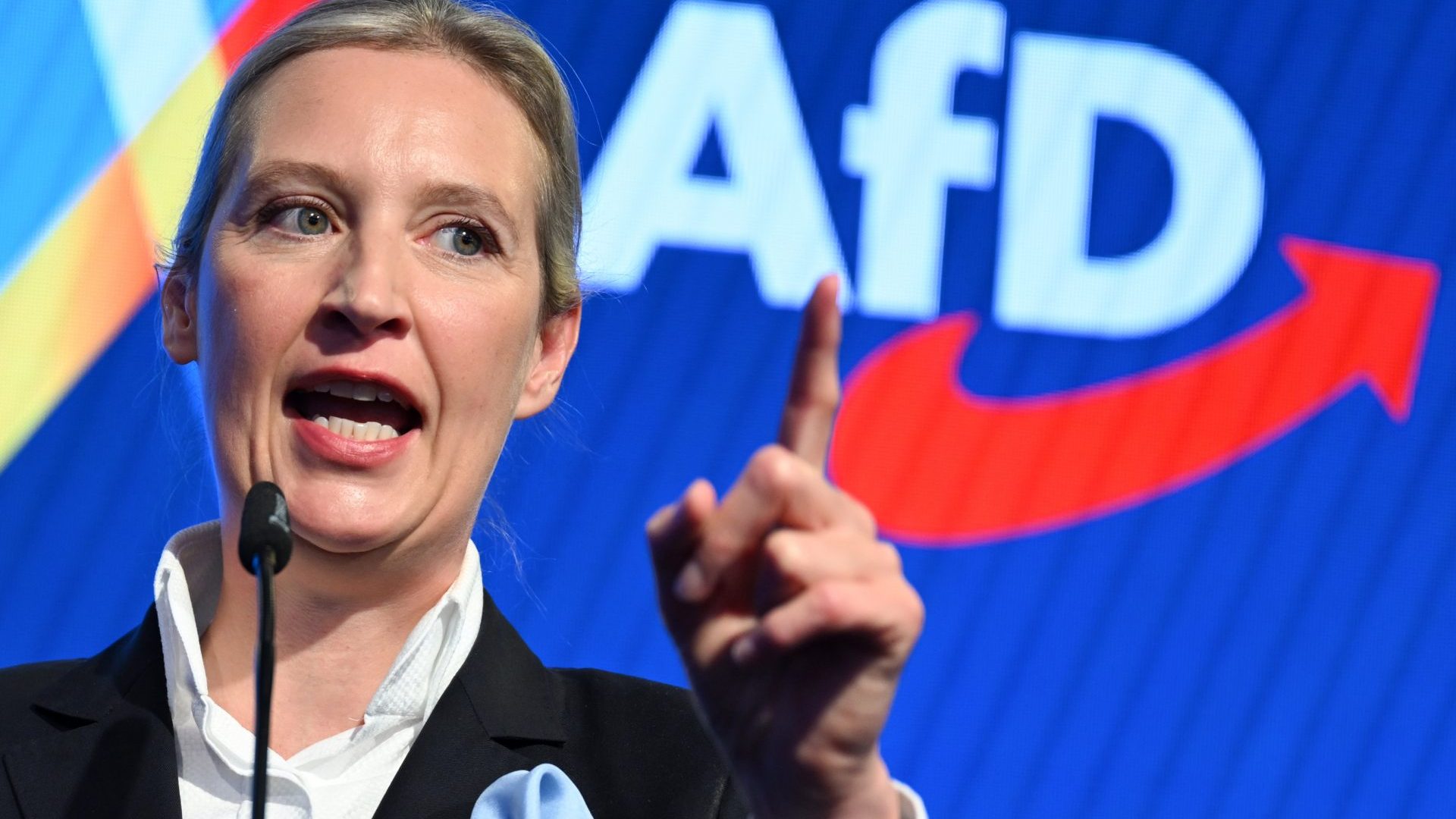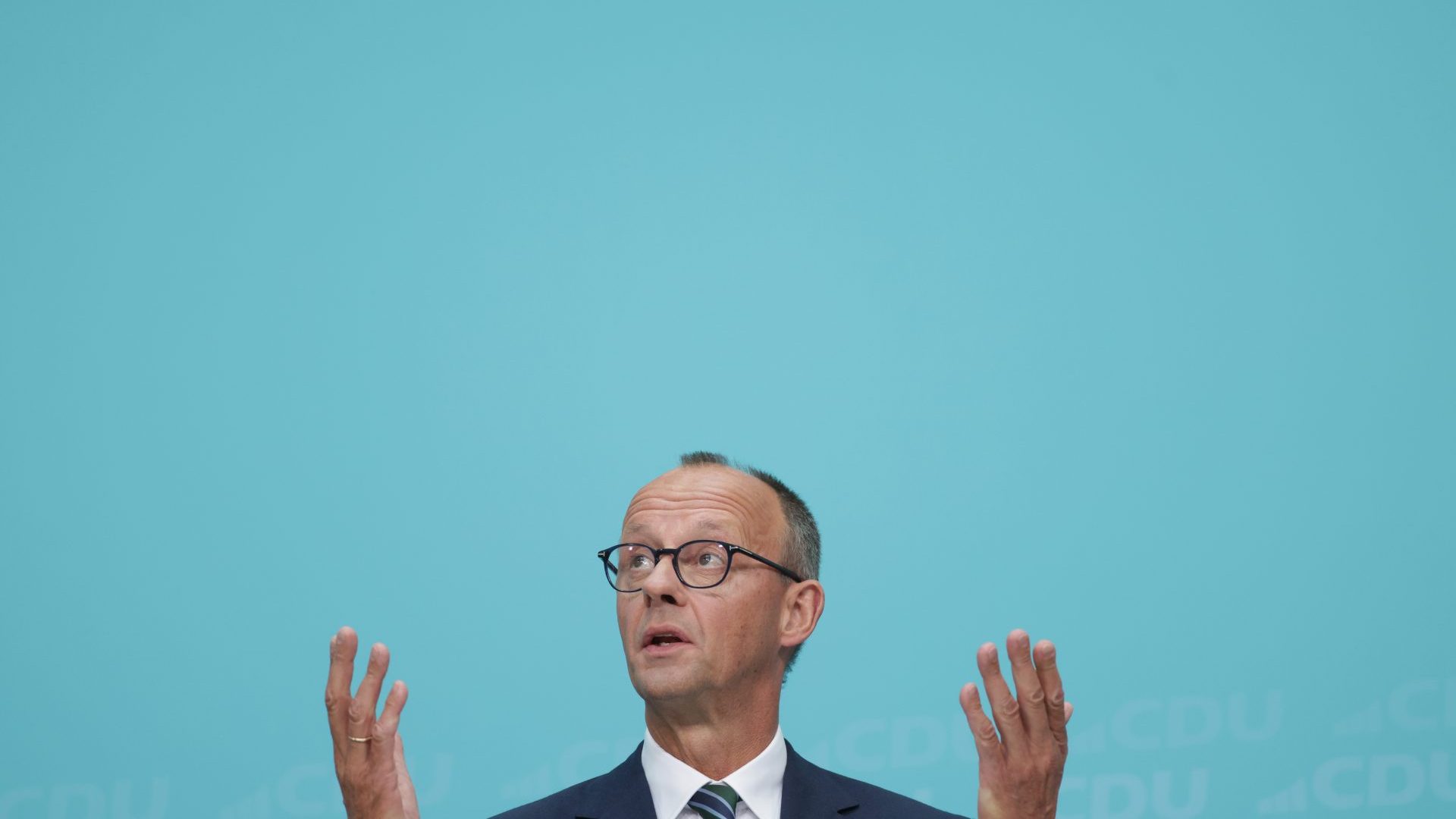One of the curiosities of elections in any country is that when the results are close to the predictions they lead to a shrug of the shoulders. That is the biggest danger of all when looking at the outcome of Germany’s momentous vote.
The far-right Alternative für Deutschland, a party considered so extreme that not even Marine Le Pen or Giorgia Meloni are prepared to align with it, has secured the blessing of one in five Germans. Its support has doubled in three years. Although that is exactly what the opinion polls predicted, it is still a moment of intense alarm, particularly given its closeness to Donald Trump, Elon Musk and other allies of Vladimir Putin.
The only crumb of comfort is that it could have been worse. Many wondered whether the pollsters had failed to spot the ‘silent’ AfD voter. They hadn’t. AfD voters no longer feel the need to be silent. They are everywhere. Their leader, Alice Weidel, was everywhere, in the TV debates and in the public consciousness.
That is the long-term nightmare for Germany. For the next four years – if his government lasts longer than this past one – the next chancellor will be Friedrich Merz, a classic Conservative, a man who has been through more political journeys than most. After a quarter of a century of waiting, the 69-year-old finally has his moment.
Merz will have to wait before knowing whether he can lead a government of two or three partners – that will depend on whether two small parties sneak over the 5% threshold for entering the Bundestag, which changes the overall distribution of seats.
The more parliament is salami-sliced, the harder it will be for him. However, as he made clear during his victory speech, “the world isn’t waiting for us”. Germany cannot spend months haggling over small differences while Ukraine burns under the Trump-Putin axis.
For Merz’s Christian Democrats (CDU) it was a satisfactory result, but nothing special. Apart from the AfD, the only other party celebrating was Die Linke, the Left, showing the extent of the polarisation in politics in Germany, as it is elsewhere.
For the Social Democrats (SPD) it was a catastrophe. For Olaf Scholz it is repudiation of the four-year ‘traffic light’ coalition that he led, drawing the curtain on not just a mediocre political career, but also on his hyper-cautious manner of conducting international and domestic affairs.
The SPD are almost certain to be part of the CDU-led next government, but it will have to be a very different kind of administration. If a coalition can be formed quickly, with Merz at the helm, and with Boris Pistorius as his deputy, then it may well have the impetus to embark on radical economic reform and provide a much stronger leadership for Europe at a time of Trumpian mayhem.
Pistorius, who as defence minister tried almost single-handedly to usher in a new era of more spending on the military and stronger support for Ukraine, called his party’s result “devastating and catastrophic”. The SPD’s only hope now is that Pistorius takes the party in a new direction, away from the ‘salon pacifism’ of old. He and other reformers can thank the threatening rants of JD Vance and others at the recent Munich Security Conference for concentrating German minds.
It could well be that Merz relies on both the SPD and the Greens, whose result was only a little down on 2021, but still disappointing. Robert Habeck, the Greens’ candidate for chancellor, sounded emollient during the traditional TV debate involving all the party leaders.
Habeck, who spoke of the “betrayal” of Ukraine by the United States, would heartily support a more muscular German foreign policy. The harder part will be finding common ground on immigration, which – until Trump’s embrace of Putin – was the hottest issue in the campaign.
Merz and the leaders of the smaller parties know they have no choice but to cut a deal – if they don’t want to hand further ammunition to the AfD. Their second challenge is that they need to deliver, big time, for a country that is already heading towards a third year of recession.
The AfD’s strategy is clear. As Weidel said during the TV round, her party will wait until the coalition “comes crashing down”. In the meantime, the extremists will whip up more anxiety over immigration – particularly if there are more terrorist attacks.
That anxiety will be bolstered by all the huge funding the AfD receives from murky sources, the ostentatious endorsement of those around Trump and the disinformation opportunities provided by Musk’s X platform and by Tiktok.
What is without doubt is that the far right is part of the political furniture in Germany, as it is everywhere, led by the United States. The ‘firewall’ established by the mainstream parties exists only in terms of ruling out a formal political coalition. The mainstream media, including the public service broadcasts, have long given up trying to ignore her.
As the new government tries to unlock investment to sort out the ailing economy, as it introduces new immigration measures, as it seeks to navigate the parlous security and foreign policy problems, it will face huge hurdles at every turn. Elections for the 16 Länder come thick and fast, each being regarded (like by-elections in the UK) as a vote of confidence in the government of the day.
This will be a period of intense drama, culminating in the next general election. Germany, even more than other countries in Europe, is now the centre of the epic tussle between mainstream authoritarian populism and what is left of liberal democracy.




